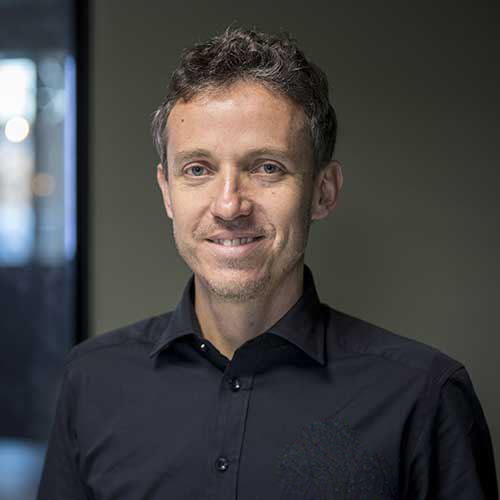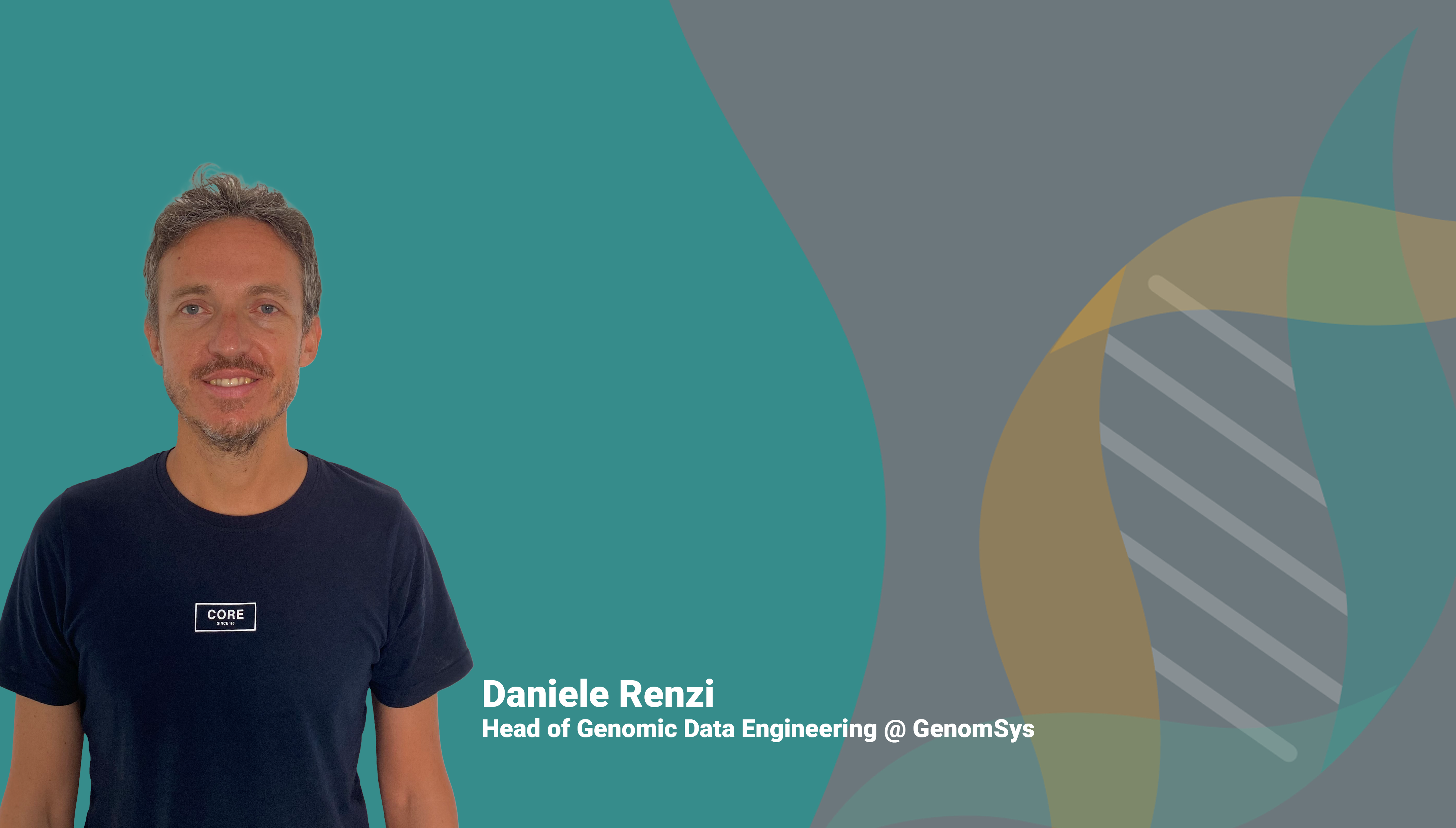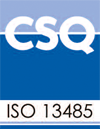Learn more about Daniele through the following quick questions:
Ciao Daniele. What do you do at GenomSys, and what are you currently working on?
I joined GenomSys just after its foundation and over the years, I took part in the development of both the ISO/IEC 23092 standard (also known as MPEG-G) and the company technology. I’m currently leading the development of the MPEG-G Codec Suite, which is our collection of software tools and software development kit based on the MPEG-G standard: it is basically the engine of any data processing based on MPEG-G that we perform in our products.
What is your take on personalized medicine and what role does GenomSys play in that?
I believe that digitalization will be the key to bring medicine to the next level, and in particular, genomics will play a fundamental role in personalized medicine to reach that level. GenomSys’ ambition is to pave the way for a new healthcare system that will make medicine and patients closer, by solving many of the challenges that are still slowing this evolution down, from both the technical (storage, data access, processing speed) and the regulatory and privacy points of view.
What is the most significant benefit of MPEG-G, in your opinion?
Having worked with codecs for almost 20 years, I would emphasize that they are not only compression, though compression is undoubtedly a key feature (compression ratio is very good in MPEG-G, by the way). As editor of part 1 of the MPEG-G standard (the one named “Transport and storage of genomic information”), I am particularly attached to anything related to selective access, data encapsulation, aggregation, and transport. But if I have to pick one specific benefit, I would go for the entire ecosystem that MPEG-G is aiming to create, which is unified (one single format for all stages of a genomic pipeline), secure, flexible, and, last but not least, fully interoperable: interoperability should always be the first thing to take into account when speaking about data formats and standards; we tend to forget sometimes how many benefits interoperability brings, such as reduced costs, faster data exchange, greater productivity, unambiguous data analysis, etc.
Genomic data and data privacy challenges. What is, in your opinion, a way to solve this issue?
I believe that data protection is fundamental in healthcare, especially when dealing with genomic data, as the genome basically defines a person and may potentially be misused or even abused. My opinion is that providing a solid, flexible, and scalable privacy framework is the key to solve privacy issues.
When did you join GenomSys and what was one of the most memorable moments you experienced during GenomSys’ journey so far?
I joined GenomSys just 3 months after it was founded back in 2016. It has been great to participate from the beginning in the development of the technology and see both the MPEG-G standard and our software grow up and reach the levels of quality and maturity that they have now.
There have been many memorable moments, but I will go for the day in which part 1 of the MPEG-G standard has been promoted International Standard by ISO, as it has been the outcome of years of hard and dedicated work.
When you’re not programming at GenomSys, what do you do in your free time?
I love running and I do it quite regularly. In general, I enjoy outdoor activities, such as hiking, which I do whenever I can, but not as often as I would like, especially given the enormous opportunities that Switzerland has to offer.
Also, I am a music enthusiast (of only specific genres though, such as hard rock and metal) and practice acoustic guitar.
Do you listen to podcasts? What are you currently listening to?
Yes, I do especially when I’m driving or in general traveling. I am currently listening to a podcast named “Science vs.”, covering entertainingly any kind of scientific subject and, in particular, focusing on dispelling “cultural” myths using scientific evidence.
Do you have a favorite chromosome and why is this your favorite one?
The one we can compress best, that is why chromosome X is my choice, as it is the one with the highest redundancy. And redundancy is good when it’s about compression!
What is your favorite base in the DNA (adenine, guanine, cytosine, or thymine)?
My favorite one is Thymine, as it is the only one that changes during the transcription to RNA: although this is not the kind of change that literally fuels evolution, I really like the idea of change, in all aspects of life, as there wouldn’t be any progress without change.
If you have any further questions for Daniele or about GenomSys, please feel free to contact us.





